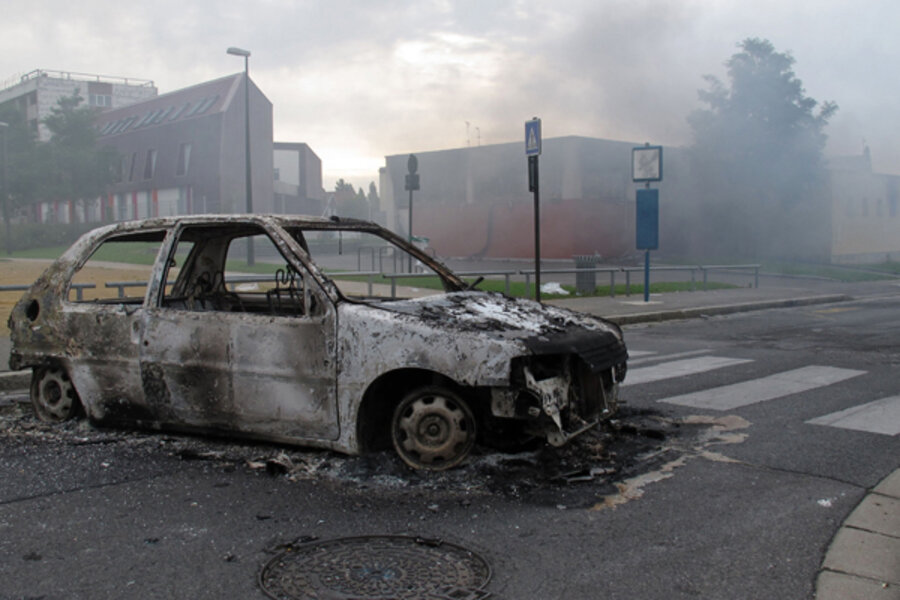Youths battle police in northern France riot
| Amiens, France
Youths fired buckshot at police in clashes in the French city of Amiens overnight on Tuesday, torching cars and a nursery school in a resurgence of urban unrest that President Francois Hollande said he would do everything to confront.
Hollande dispatched his Interior Minister Manuel Valls to the northern city, where two nights of violence were apparently sparked by tension over spot police checks on residents.
Officials said 16 police officers were hurt in the disturbances, some struck by buckshot others hit by a hail of missiles thrown by around 100 youths who gathered in northern districts of Amiens.
One officer was in a serious condition, the city's Socialist Mayor Gilles Demailly told Reuters.
Speaking during a visit to southeastern France, Hollande said the state would "mobilise all its resources to combat this violence", which has shaken depressed quarters of major French cities at regular intervals.
"Security resources have sadly be declining for too many years," said Hollande. "Our priority is security which means that the next budget will include additional resources for the gendarmerie and the police."
Reinforcements were being dispatched to the suburb, parts of which had already classified as a "priority security zone" in need of extra policing. The policy formed part of the Socialists' election campaign pledge on law and order.
The unrest was the first major law and order test for Hollande's ruling Socialists following his May election victory over conservative incumbent Nicolas Sarkozy, whose tough policies on crime and immigration some critics said fanned urban unrest.
SMOULDERING RUINS
During a night of disturbances, rioters set fire to a number of vehicles, in some cases hauling the drivers out of their cars before burning them, mayor Demailly said.
Gutted buildings, including a nursery school, and burnt out cars were still smouldering early on Tuesday, though the streets were otherwise calm. No-one has been arrested so far.
Valls, a law and order hardliner who irks some fellow Socialists, was dispatched to Amiens from southern France where he was on official business with Hollande.
"This violence towards police, these buildings that were burned down, these people gripped by fear - this is unacceptable," Valls told reporters.
Some leftwing critics say his tough talk bears uncomfortable parallels with the strong line taken by Sarkozy.
As mayor of a racially mixed suburb before being appointed to Hollande's government, Valls served more than 10 years ago as a spokesman for Socialist former Prime Minister Lionel Jospin, whose 2002 presidential election defeat was partly put down to his image as soft on law and order.
Tensions remain high in many French suburbs, where poor job prospects, racial discrimination, a widespread sense of alienation from mainstream society and perceived hostile policing have periodically touched off violence.
Weeks of rioting in 2005, the worst urban unrest in France in 40 years, led to the imposition of a state of emergency by the then centre-right government. Incidents involving police provoked disturbances in 2007 and 2010.
The repeat bouts of violence have provoked agonised debate over the state of the grim housing estates that ring many French cities and the integration of millions of poor whites, blacks and North African immigrants into mainstream society.






